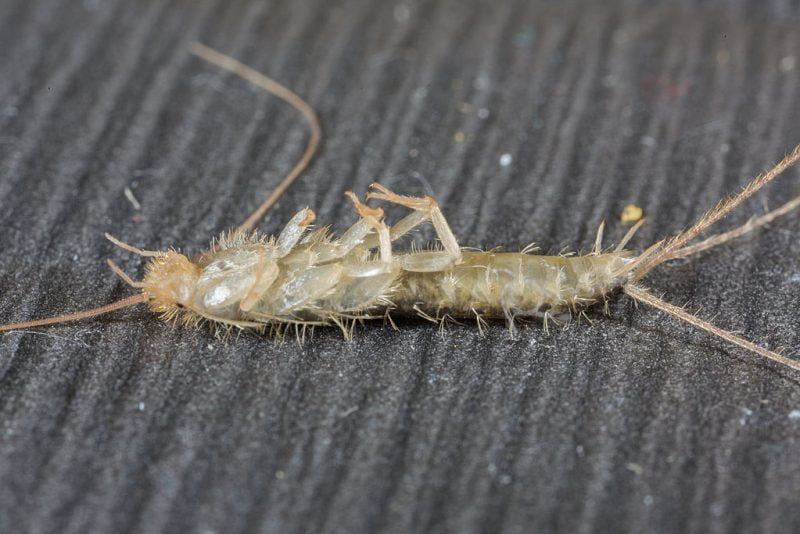It’s a frequent belief that pests will depart until next year once the weather becomes colder. The truth is that in the winter, crawling insects and other pests that don’t hibernate might find their way into our houses and attract mice and other rodents in search of warmth.
Winter pest treatment is equally as important as summer pest control. Winter pest management can protect your home from the damage and disease that rodents and insects can cause, but it can also help you prepare for a successful spring.
Keeping your protective barrier guarantee up to date regularly is a good idea. Cutting your pest control service over the winter to save money gives bugs a jump starts for the spring and may void your warranty.
Table of Contents
Common Types Of Pests Grow In Winter
Mice and rats can enter your home through even the tiniest gap or opening. They can munch on your attic’s wiring, wood beams, electrical lines, and insulation. Insects that eat wood Carpenter ants and termites eat away at the structure from the inside out.
So, you don’t see the damage until it’s too late. If you see carpenter ants indoors during the winter, it’s because they’ve built a nest inside your walls, floors, or decomposing wood. In the late fall and early winter, many insects seek refuge in the attic or basement to avoid the freezing temperatures.
Spiders, cluster flies, Asian ladybugs, and boxelder bugs will be dormant until spring. They can then easily find their way into your living spaces as the weather warms.
When the weather becomes warmer, removing webs, nests, and egg cases can help prevent pests from remerging in your home. Some species are hardwired to return to certain locations, but removing all of their reasons to return increases the likelihood that you’ll ultimately be saying “ta-ta” to them permanently.
Do All Pets Die In Winter?
Not at all; all pests don’t die or hibernate in the season of winter. The species determines whether a pest hibernates or dies throughout the winter. In the winter, mice, rats, and tree squirrels remain busy, including looking for warm hiding places such as your home. Chipmunks and groundhogs, for example, hibernate during the winter.
It differs not just by species but also by gender or subclass in the case of insects. Female mosquitoes, for example, store fat for the winter and enter a hibernation-like phase called diapause. In the fall, male mosquitos die out. Similarly, bees do it. The queen will remain in the center, vibrating or shivering, as the hive clusters around her.
Benefits Of Getting Pest Control Treatments In Winter
During the winter, specialists can focus their attention on the interiors of homes, uncovering new problems that property owners were previously unaware of. Inspection is given additional attention to preparing the property when the warmer season returns.
During the winter months, both spiders and rats can be a concern. In the case of spiders, webs are destroyed, and infested locations and other areas where they are likely to try to re-infest are treated. Rodent activity is monitored in basements, crawl spaces, and attics to avoid owners seeing traces of activity in more visible areas.
Providing full attic remedies is another important step conducted during the winter months. Many pests, such as carpenter ants hide in attics and go dormant until the weather warms up. They then enter your property, which necessitates costly treatment.
Dusting attic areas over the winter months will keep these pests out of your home, preventing you from dealing with them when spring arrives.
How Do Professional Pest Control Team Members Work?
The interior of your home is the focus of professional pest control services throughout the fall and winter. Anything that has changed since their last visit is one of the first things that the team searches for.
It’s not uncommon for specialists like those from Turner Pest Control services to discover new openings that didn’t exist on their previous visit. They’ll also look over any rodent deterrents that have been installed to ensure they are still effective.
In the winter, professional pest control services are adapted to the homeowner’s needs. Trained service professionals concentrate on the home’s interior, looking for any openings through which pests could enter. If any such openings are discovered, the homeowner will be notified, and the openings will be sealed to keep vermin out.
In the interim, spider webs in the home’s interior will be knocked down and cleaned out. Your pest control professional will also apply a prophylactic pesticide treatment to your home’s basement to keep crawling insects at bay.
Conclusion
Don’t mistake thinking that winter is a good time to avoid insect management. It gives you time to prepare for the coming summer months! Professionals will assist you in locating and sealing insect access points and utilizing pesticides to establish a protective barrier around your property.
Because light, heat, and moisture are less of an issue during colder seasons, the optimal time to install this barrier is in the winter. You’ll have a pest-prevention plan in place when the temperature rises again.





